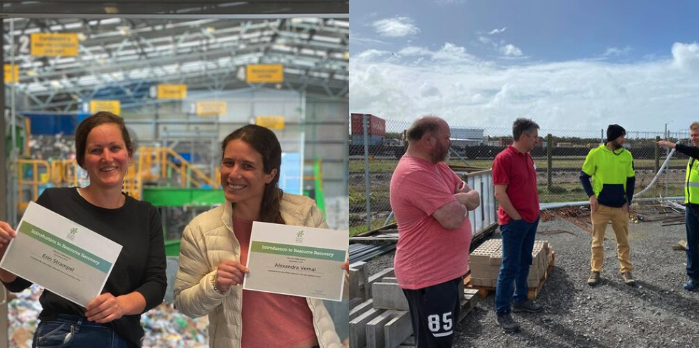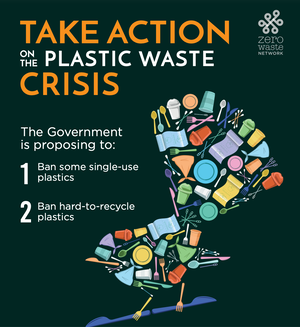Zero Waste Training
Some of our Sustainable Taranaki team members had the chance to participate in the Introduction to Resource Recovery course, a two-day training course by the Zero Waste Network held at The Junction on 15th and 16th of September.
The course was hosted by Marty Hoffart, a zero waste expert who has been involved in a number of resource efficiency initiatives throughout Aotearoa and is highly knowledgeable in zero waste principles. He has also held a very interesting TEDx talk on the opportunities for New Zealand to maintain its green image.
“If you can’t recycle, reuse or compost it, you simply shouldn’t be making it”.
- One of Marty’s famous quotes
It was a great chance to learn more about different concepts, activities and resources, and to connect with colleagues from our partner organisation WISE Charitable Trust who run the Junction Shop.
Our team gained some valuable knowledge and skills required to safely and effectively work at a community resource recovery centre, including an overview of current legislation, a deeper understanding around the concepts of zero waste, strategies for behavioural change and education, and interesting ideas for activities and events. A visit to the North Taranaki Men’s Shed was included as a practical part of the training - learning about how materials are currently being reused and transformed into valuable objects while also actively supporting the community.
A positive experience post- training
A week after the training, one of our team members encountered a situation where she was able to put her newly acquired learnings into practice. During a visit to a rural property who is focused on sustainability practices and working towards a zero waste life, the home owner mentioned they usually burn their plastic waste as they believed this was a more environmentally friendly approach than sending the plastics to landfill. The discussion around burning vs. landfill came up a few times during the Zero Waste training, and it was made clear that, while landfill is not an ideal solution, the environmental impacts of burning plastics at household level are more damaging in the long run.
Our team member kept a positive position and brought this up to the home owner. After leaving the property, the home owners started reseaching about the impact of burning plastics and came to their own conclusions:
I decided to educate myself and did some research. I can see that to effectively and environmentally burn plastic safely requires a large sophisticated plant rather than a home fire. And sadly that burying (soft) plastic for now is the best option available (other than reducing and recycling). So from now on we have decided to send our soft plastic rubbish to landfill.
But still we try to not accumulate plastic rubbish! I will not collect carpet that has plastic in its backing anymore.
Thanks for inspiring me to research this. Every day is an opportunity to learn and grow.
It was very meaningful for our team to have an informed conversation around trying something different. As a team, we are all growing and learning, and it’s great to get the chance to put our learnings into practice, share different perspectives and try to understand other points of view.
If you want to learn more about minimising your waste, getting involved in sustainable practices and getting hand-on experiences, visit our The Junction page for more information on tours to the recycling facilities and upcoming workshops.
Get involved!
The Government is proposing to move away from hard-to-recycle plastics via a mandatory phase-out. This means, over time, a range of hard-to-recycle and single-use plastics will be banned from use and manufacture in Aotearoa New Zealand.
In order to support this initiative, the Zero Waste Network has created a submission form for members of the community to get involved and have their say in the consultation process. Click here to make your submission supporting the Government’s consultation and help eliminate unnecessary plastics.



